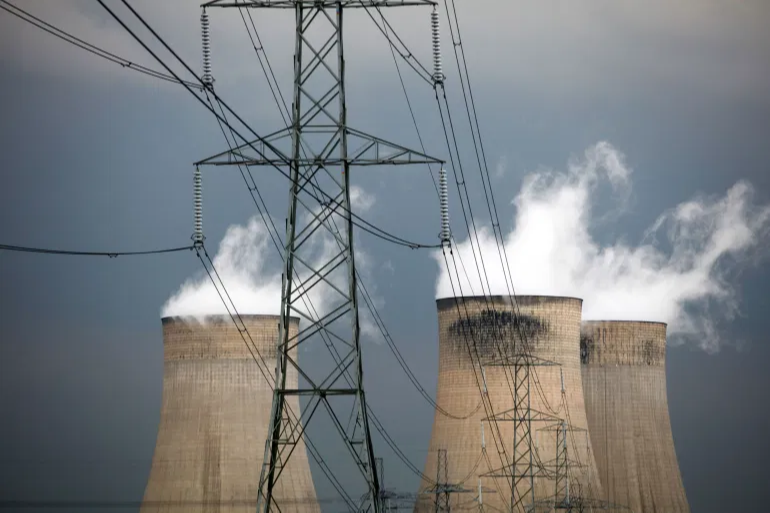
The British government plans to create up to 80,000 jobs over the next 30 years under its plan to slash carbon emissions. (Photo: Chris Ratcliffe/Bloomberg)
London, March 17 (RHC)-- The United Kingdom says it plans to invest one billion pounds ($1.39 billion) to cut emissions from industry, schools and hospitals as part of wider “green revolution” designed to create thousands of jobs and meet climate targets.
The UK has a target to reach net zero carbon emissions by 2050 and is also seeking to boost jobs and repair economic damage caused by the effects of the coronavirus pandemic.
“Today’s plans will make a considerable dent in the amount of carbon emissions emitting from our economy and put us on the path to eliminate our contribution to climate change by 2050,” Business and Energy Secretary Kwasi Kwarteng said in a statement on Wednesday.
The measures will create and support up to 80,000 jobs over the next 30 years and help the country cut emissions from industry by two-thirds in 15 years, the statement said.
Cutting emissions from industry is one of the toughest areas in the fight against climate change. Furnaces reaching 1,500 degrees Celsius (2,700 Fahrenheit) are needed to forge steel or produce cement and renewable energy alone can not produce those sorts of temperatures.
The government’s new strategy sets an expectation for industry to switch 20 terawatt-hours of its energy from fossil fuels to low carbon sources by 2030. That is equivalent to 17 percent of all renewable energy generated by the UK in 2019.
Ultra-high temperatures have conventionally been produced by burning coal or gas. That now has to change and the government is betting on the development of hydrogen to help replace fossil fuels, especially in energy-intensive industries.
Some 932 million pounds ($1.3 billion) will be directed to 429 projects across England to help reduce emissions from public buildings such as schools, hospitals and council buildings through low-carbon schemes including energy-efficient insulation, low-carbon heating systems, installing solar panels and efficient lighting.
A further 171 million pounds ($238 million) will be allocated to nine projects in Scotland, South Wales and North West, Humber and Teesside in England to help decarbonise industry. These include projects to capture, store and use carbon emissions and projects to use cleaner fuels such as hydrogen.
“The Industrial Decarbonisation Strategy will send a clear signal to the market by setting out how the government expects decarbonisation to happen, while improving investor confidence,” Kwarteng said.
Prime Minister Boris Johnson last year announced a “green revolution” which he said would mobilise a total of 12 billion pounds ($16.7 billion) of government money and create 250,000 highly skilled green jobs by 2030.
Meanwhile, policymakers from around the world are calling for more ambition ahead of November’s crucial United Nations climate talks in the UK. Johnson’s government on Tuesday committed to making climate change its top priority for foreign policy as the UK seeks to carve out a new role in the world after leaving the European Union.
There is pressure on the UK to lead by example, an aspiration that has been called into question over its plans to build a new deep coal mine in northern England.
Energy Minister Anne-Marie Trevelyan has argued that the mine, in Cumbria, will help the steel industry become greener because it will allow steel plants to use coal dug up at home rather than importing emissions. Planning permission for the mine will now be subject to a public inquiry following concerns that it would derail the UK’s efforts to meet its target for net zero emissions.

